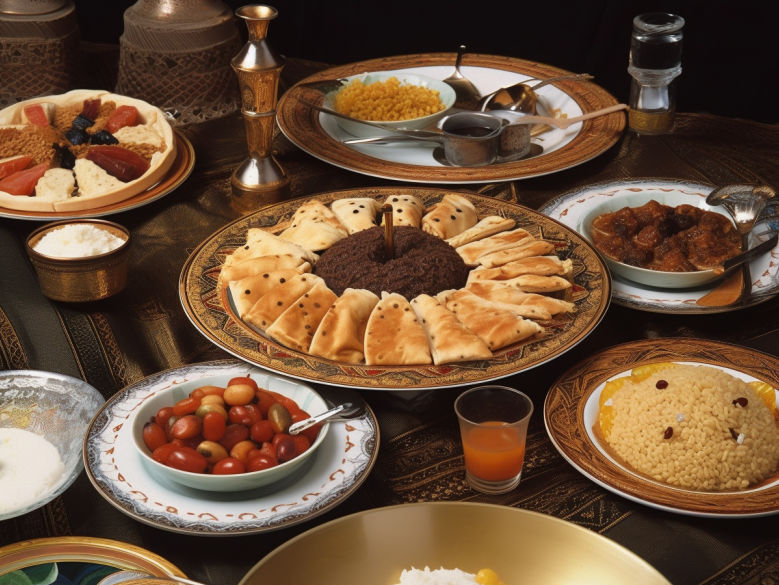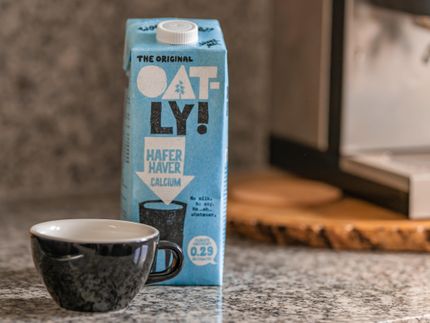Ramadan: 5 healthy innovative food and drink launches
What is Ramadan, and what role does food and drink play during this month?
During Ramadan, Muslims do not eat or drink during daylight hours. And for many non-Muslims, Ramadan is primarily known for this fasting element.

Computer generated picture
However, food and drink do actually play an important role during the Islamic holy month. Each day of fasting begins with a pre-sunrise meal called suhoor and ends with a post-sunset meal called iftar. Iftar meals are often a time for celebration, with families and friends coming together.
How can food and drink brands help provide healthy Ramadan products?
But as people break their fasts, it is all too easy to consume excessive calories, as many traditional iftar dishes are high in carbohydrates, fat and sugar. This is proving to be a challenge given that, in many Muslim countries post-COVID-19, consumers are trying to adopt healthy diets.
With the start of Ramadan, we highlight 5 recent examples of health- and wellness-focused food and drink launches that could meet the pre- and post-fasting needs of Muslims globally:
1. Prepare for the fasting: Pearl Millet porridge drink
Raab or pearl millet porridge is a thick, creamy nutritious drink that is mostly consumed in India and East Africa during the winter months to prevent colds. It’s made with pearl millet flour, ghee, spices and jaggery and is usually served warm. Although millet flour porridge is usually consumed to prevent illnesses, it is also seen as an energising drink that replenishes lost nutrients and sustains energy throughout the day.
A convenience-focused example of this is Yamkay Pearl Millet Porridge from India. It is rich in iron, calcium, vitamin B complex and fibre. The product helps keep a person full throughout the day, making it suitable for a filling and nutrient-packed pre-sunrise snack.
2. Manage caffeine withdrawals: The half caffeine capsules
On fasting days, a common challenge is not having the daily cup of coffee. Managing caffeine intake during Ramadan can, therefore, be tricky. A sudden drop in caffeine consumption can often lead to symptoms such as headaches, irritability and drowsiness. Drinking decaf and low-caf coffee can offer consumers ‘caffeine in moderation without the jitters or crash’ before and/or after fasting.
Lost Sheep Coffee Fifty Fifty The Half Caffeine Compostable Capsules from the UK can meet this need. They are described as a unique blend of caffeinated and decaffeinated coffee capsules. The coffee is hand-roasted in small batches and retails in 100% compostable and plastic-free, Nespresso-compatible capsules.
3. Plant based diet: frozen soy protein mini kibbeh
Meat remains a key component of Middle Eastern Ramadan cuisine, but interest in plant-based food is on the rise. In Saudi Arabia, over a third of adults try to limit their meat intake all or most of the time, peaking among those aged 18-34. This interest is primarily motivated by health, although environmental and ethical impacts are also contributing factors.
Kibbeh is a popular Middle Eastern appetiser that is commonly seen on iftar tables. It’s generally made from spiced ground meat, bulgur wheat and pine nuts. From Brazil, Fazenda Futoro recently launched a frozen plant-based kibbeh that is made from soy protein but is said to have a meaty texture and taste. The launch demonstrates how plant-based food manufacturers can adjust their offerings to regional taste, texture and format expectations. Plant-based alternatives to iftar staples have untapped potential.
4. Convenience and quality: Middle Eastern Style Harissa Chicken Tagine Meal Kit
Alongside the hours dedicated to fasting, the time spent preparing food plays an important role during Ramadan. While some consumers tend to host a feast at home, many look to minimise the stress of cooking. Portion-controlled meal kits will likely be well received by Muslim consumers who want the convenience of authentically flavoured yet quick-to-prepare food during Ramadan.
Therefore, Al’Fez Middle Eastern Style Harissa Chicken Tagine Meal Kit from the UK could meet these needs. It consists of separate sachets of smoky harissa sauce, dry couscous and whole spices and can be prepared in 20 minutes with the addition of chicken. It is designed to serve two people.
5. Encourage mindfulness and reflection: Sleep Friendly Cold Brew Decaf Ice Cream
Ramadan is an important time for Muslims to meditate and partake in activities that encourage mindfulness. It is a time of great reflection and provides many Muslims with spiritual renewal. This is particularly appropriate for 2023 when consumers of all races, nationalities and faiths are taking steps to manage their mental wellness. According to Mintel Trend Mood to Order, modern lifestyles are elevating stress levels for consumers, and this is generating demand for products that improve mental wellbeing.
Ice cream may not be the most obvious food to provide relaxation benefits, but the Nightfood Sleep Friendly Cold Brew Decaf Ice Cream has gained mass publicity in the US for its sleep-supporting ingredients. This product includes magnesium, zinc, calcium, digestive enzymes, casein protein, prebiotic fibre and vitamin B6. This sleep support benefit can especially resonate during Ramadan.





























































